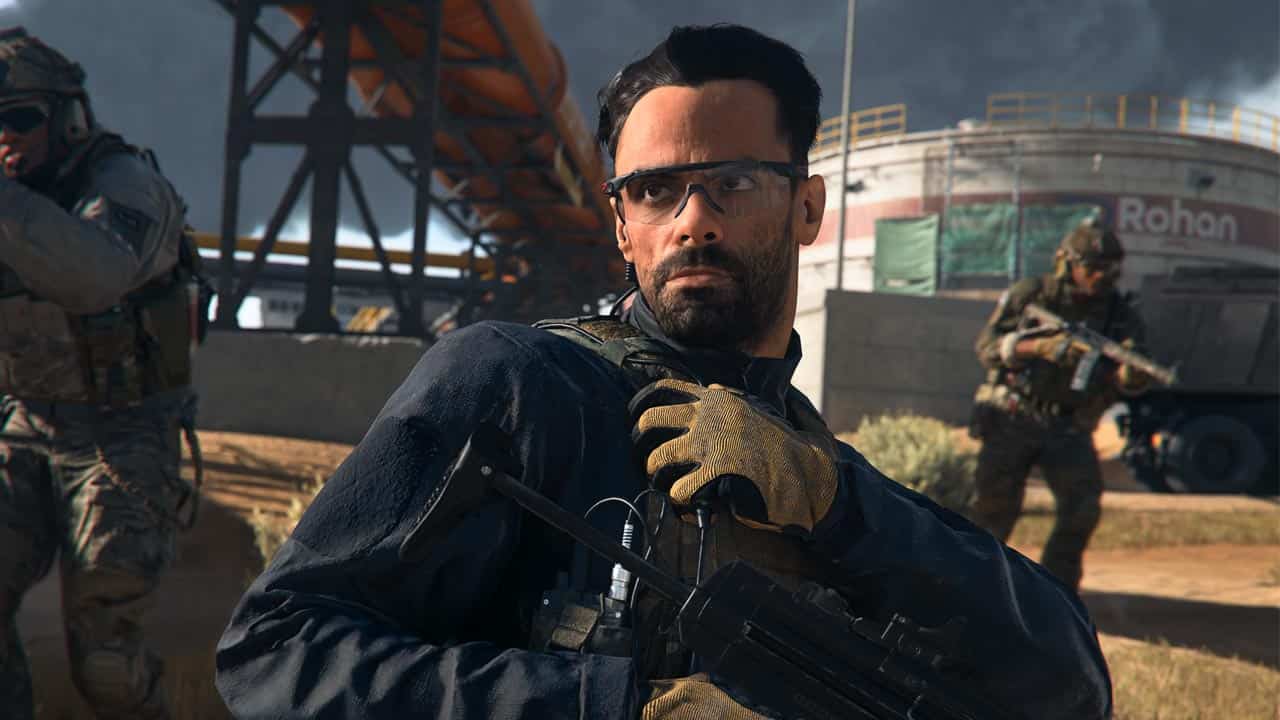Microsoft-Activision Deal: FTC Files Appeal Against Court Decision

Table of Contents
The FTC's Arguments Against the Merger
The FTC's core argument centers on the assertion that the Microsoft-Activision merger will create an anti-competitive environment within the gaming market. This concern is particularly acute regarding Activision Blizzard's immensely popular Call of Duty franchise.
Concerns about Anti-competitive Practices
The FTC argues that the merger would allow Microsoft to stifle competition by leveraging its control over Call of Duty and other key Activision Blizzard titles.
- Exclusive Titles: Microsoft could potentially make Call of Duty exclusive to its Xbox ecosystem, significantly harming players on competing platforms like PlayStation. This would give Xbox a massive competitive advantage, potentially driving players towards the Xbox ecosystem.
- Control over Game Development and Distribution: The merger grants Microsoft immense control over game development, distribution, and pricing, potentially leading to higher prices and reduced innovation. This consolidated power could negatively affect the choices available to gamers.
- Harm to Consumers: Ultimately, the FTC argues that this lack of competition will harm consumers through higher prices, fewer choices, and potentially a decline in the quality of games.
The Judge's Ruling and the FTC's Disagreement
The FTC strongly disagrees with the court's decision that Microsoft's proposed remedies sufficiently addressed anti-competitive concerns.
- Inadequate Remedies: The FTC believes that the proposed remedies are insufficient to protect competition and prevent Microsoft from abusing its market power. They argue the conditions attached were insufficient to guarantee fair play.
- Underestimation of Market Power: The FTC claims the judge underestimated the potential for Microsoft to leverage its significantly expanded market power post-merger, leading to anti-competitive behavior.
- Disagreement with Evidence Assessment: The appeal highlights the FTC's fundamental disagreement with the court's interpretation and assessment of the evidence presented during the initial trial.
Potential Impact on the Gaming Industry
The outcome of the FTC's appeal will profoundly impact the gaming industry. The ramifications are far-reaching and extend beyond the immediate players involved.
Future of Game Consoles and Pricing
The appeal's outcome will significantly shape the competitive landscape of the gaming console market and potentially influence game pricing.
- Increased Game Prices: An overturned ruling could potentially lead to increased prices for games, particularly those developed and published by Activision Blizzard. This could affect gamers across all platforms.
- Cross-Platform Gaming: The decision could impact the development and availability of cross-platform gaming features, potentially limiting access to certain games or features based on console ownership.
- Precedent Setting: The decision will likely set a significant legal precedent for future mergers and acquisitions in the tech industry, influencing regulatory approaches to similar deals in the future.
The Role of Call of Duty and Other Franchises
The fate of Call of Duty and other Activision Blizzard franchises is central to the FTC’s appeal.
- Call of Duty Exclusivity: The FTC's primary concern revolves around Microsoft’s potential to limit access to Call of Duty on competing platforms, potentially making it an Xbox exclusive.
- Impact on Other Franchises: The appeal also considers the impact on other significant Activision Blizzard titles, such as World of Warcraft, Candy Crush, and Diablo, and their market positions.
- Broader Impact on Game Development: The broader impact on game development models, distribution strategies, and innovation within the gaming industry are also key elements of the FTC's arguments.
What Happens Next? The Appeal Process and Potential Outcomes
The FTC's appeal will now enter a lengthy legal process with several crucial stages.
Timeline and Legal Proceedings
The appeal process involves several stages, each with its own timeline.
- Uncertain Timeline: The timeline for the appeal process is uncertain, potentially spanning several months or even years.
- Court Review: The appeals court will meticulously review the lower court's decision, examining the evidence and evaluating the FTC's arguments.
- Potential Outcomes: Several outcomes are possible: upholding the original decision, overturning it, or remanding the case back to the lower court for further proceedings.
Implications for Microsoft and Activision Blizzard
The appeal's outcome carries significant ramifications for both Microsoft and Activision Blizzard.
- Merger Delay or Block: A successful appeal could significantly delay the merger or even block it entirely, drastically altering Microsoft's gaming strategy.
- Merger Completion: An unsuccessful appeal would solidify Microsoft's acquisition of Activision Blizzard, allowing the company to integrate Activision Blizzard's properties into its ecosystem.
- Investor Confidence: The outcome will inevitably impact investor confidence and influence future business decisions for both companies, shaping their long-term strategies.
Conclusion
The FTC's appeal against the Microsoft-Activision deal has far-reaching implications for the future of the gaming industry. The outcome will shape competition, pricing, and access to popular games across various platforms. The legal battle is far from over, and continued monitoring of this high-stakes case is crucial. Stay informed on the latest developments in this pivotal legal battle surrounding the Microsoft-Activision deal, and its implications for the future of the gaming industry. Understanding the nuances of this antitrust lawsuit is key to comprehending the evolving landscape of gaming mergers and acquisitions. Keep watching for updates on the FTC appeal and its impact on the Activision Blizzard acquisition.

Featured Posts
-
 Assessing Apples Position In The Ai Landscape
May 10, 2025
Assessing Apples Position In The Ai Landscape
May 10, 2025 -
 Oilers Even Series With Kings After Overtime Win
May 10, 2025
Oilers Even Series With Kings After Overtime Win
May 10, 2025 -
 5 Notable Disputes Involving Stephen King And Other Celebrities
May 10, 2025
5 Notable Disputes Involving Stephen King And Other Celebrities
May 10, 2025 -
 Casey Means And The Maha Movement Understanding Trumps Nomination
May 10, 2025
Casey Means And The Maha Movement Understanding Trumps Nomination
May 10, 2025 -
 Eus Response To Us Tariffs French Minister Advocates For Further Action
May 10, 2025
Eus Response To Us Tariffs French Minister Advocates For Further Action
May 10, 2025
